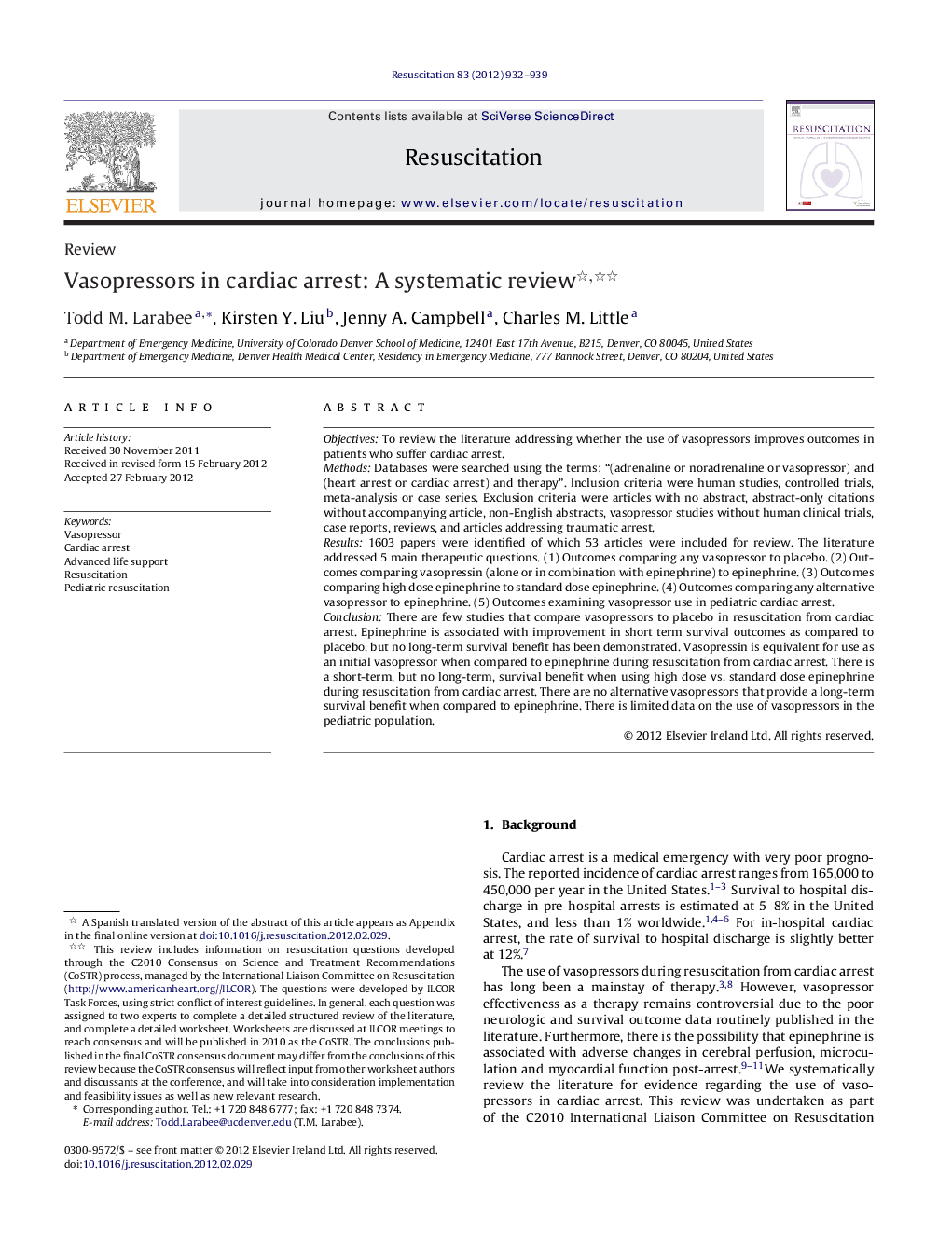| Article ID | Journal | Published Year | Pages | File Type |
|---|---|---|---|---|
| 3009006 | Resuscitation | 2012 | 8 Pages |
ObjectivesTo review the literature addressing whether the use of vasopressors improves outcomes in patients who suffer cardiac arrest.MethodsDatabases were searched using the terms: “(adrenaline or noradrenaline or vasopressor) and (heart arrest or cardiac arrest) and therapy”. Inclusion criteria were human studies, controlled trials, meta-analysis or case series. Exclusion criteria were articles with no abstract, abstract-only citations without accompanying article, non-English abstracts, vasopressor studies without human clinical trials, case reports, reviews, and articles addressing traumatic arrest.Results1603 papers were identified of which 53 articles were included for review. The literature addressed 5 main therapeutic questions. (1) Outcomes comparing any vasopressor to placebo. (2) Outcomes comparing vasopressin (alone or in combination with epinephrine) to epinephrine. (3) Outcomes comparing high dose epinephrine to standard dose epinephrine. (4) Outcomes comparing any alternative vasopressor to epinephrine. (5) Outcomes examining vasopressor use in pediatric cardiac arrest.ConclusionThere are few studies that compare vasopressors to placebo in resuscitation from cardiac arrest. Epinephrine is associated with improvement in short term survival outcomes as compared to placebo, but no long-term survival benefit has been demonstrated. Vasopressin is equivalent for use as an initial vasopressor when compared to epinephrine during resuscitation from cardiac arrest. There is a short-term, but no long-term, survival benefit when using high dose vs. standard dose epinephrine during resuscitation from cardiac arrest. There are no alternative vasopressors that provide a long-term survival benefit when compared to epinephrine. There is limited data on the use of vasopressors in the pediatric population.
